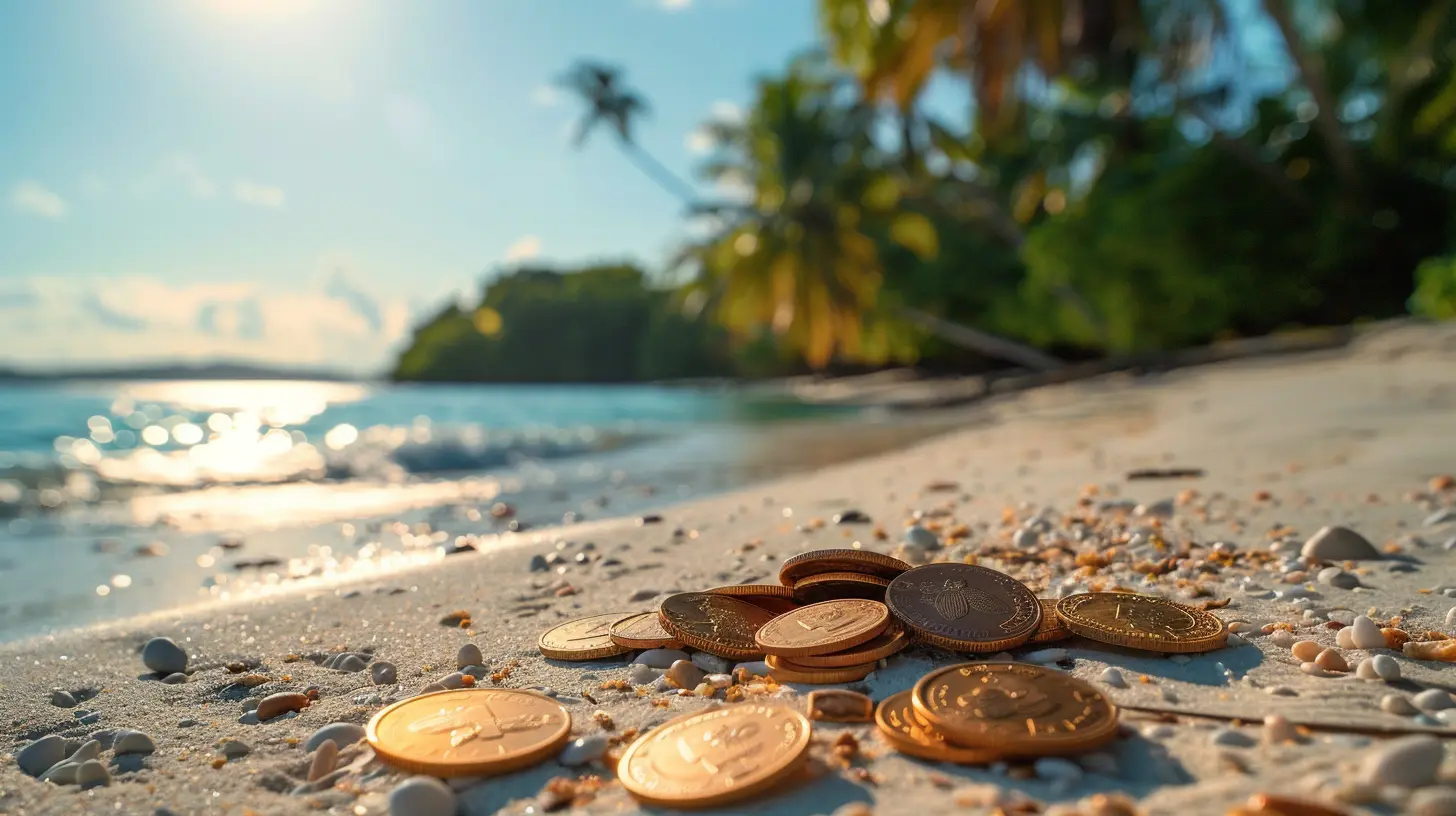The Role of Offshore Accounts in Wealth Preservation
6 May 2025
When it comes to protecting and growing wealth, high-net-worth individuals, business owners, and even everyday investors often seek smart strategies. One of the most talked-about yet often misunderstood tools in wealth preservation is the offshore account.
But what exactly are offshore accounts, and why do people use them? Are they legal? How do they help in wealth preservation? Let’s dive into these questions and uncover the real story behind offshore accounts. 
What Is an Offshore Account?
An offshore account is simply a bank account located in a country outside one’s home country. These accounts are often used for international banking, asset protection, and investment diversification. Many people wrongly assume that offshore accounts are only for shady dealings, but in reality, they’re a legitimate financial tool used by businesses and individuals worldwide.Remember, offshore banking is not about hiding money—it's about protecting and managing it more efficiently. 
Why Do People Use Offshore Accounts?
People don’t just wake up one day and decide to open a bank account in another country for no reason. Offshore accounts serve multiple financial needs, some of which include:1. Asset Protection
Lawsuits, divorces, and unforeseen financial troubles can threaten one’s assets. By holding funds in a secure offshore jurisdiction, wealth can be shielded from legal risks and excessive taxation.2. Tax Efficiency
While offshore accounts don’t grant magical tax immunity, they can help individuals and businesses structure their finances in tax-efficient ways. Many jurisdictions offer lower tax rates and other financial benefits that make offshore banking appealing.3. Currency Diversification
Holding money in multiple currencies allows individuals to hedge against economic downturns and currency volatility. Say, for example, your home country's currency crashes unexpectedly—wouldn’t it be comforting to have assets in a more stable currency?4. Privacy and Security
Some offshore jurisdictions provide enhanced financial privacy, which helps individuals keep their financial matters discreet. While transparency laws prevent complete anonymity, offshore banking still offers a level of confidentiality.5. Investment Opportunities
Some offshore banks provide exclusive investment opportunities that may not be available in domestic financial markets. Investors looking to expand their portfolio internationally often turn to offshore accounts to access global markets.
How Offshore Accounts Help in Wealth Preservation
Now that we know why people use offshore accounts, let's focus on their primary role—wealth preservation.1. Shielding Assets from Economic Instability
If your home country is experiencing political turmoil, economic instability, or even hyperinflation, your assets could be at risk. Keeping part of your wealth in a stable offshore jurisdiction serves as a safety net.For example, imagine you live in a country facing extreme inflation. If all your savings are in local currency, you could lose a significant portion of your wealth overnight. But if you’ve secured some funds in an offshore account in a stable currency, you’ve effectively preserved your purchasing power.
2. Protecting Against Legal Risks
We live in a litigious world where lawsuits can arise unexpectedly. Wealthy individuals, business owners, and professionals (like doctors or lawyers) may face legal claims that could put their assets at risk. Offshore accounts, when structured correctly, can offer legal protection by keeping assets beyond the immediate reach of lawsuits.3. Estate Planning and Inheritance Protection
One often overlooked benefit of offshore accounts is their role in estate planning. By placing assets in international trusts or offshore banks, individuals can ensure smooth wealth transfer to their heirs while minimizing estate taxes and probate delays.4. Diversifying Against Bank Failures
Bank failures happen more often than people realize. If all your money is in one country and its banking system collapses, you could lose everything. By holding money in an offshore account, you reduce the risk of total financial loss.
Common Myths About Offshore Accounts
Offshore accounts have been surrounded by myths and misconceptions. Let’s address some of the most common ones.Myth #1: Offshore Accounts Are Only for the Ultra-Rich
While the wealthy often use offshore accounts, they’re accessible to many people. With the rise of digital banking, opening an offshore account has become easier and more affordable than ever.Myth #2: Offshore Banking Is Illegal
Having an offshore account is not illegal. What’s illegal is using one to evade taxes or hide illicit funds. As long as you comply with tax laws and financial regulations, offshore banking is completely legal.Myth #3: Offshore Accounts Are Only for Tax Evasion
While offshore accounts can provide tax advantages, they’re not solely about tax reduction. Many people use them for asset protection, international business transactions, and financial security.Myth #4: Offshore Accounts Are Impossible to Open
The process of opening an offshore account is often no more difficult than opening a domestic account. Certain banks may require higher deposits, but the barriers are not as high as some people think.Choosing the Right Offshore Jurisdiction
Not all offshore banking locations are the same. Some are known for their strong banking regulations, while others are better suited for tax benefits. Here are a few of the most popular offshore banking jurisdictions:- Switzerland – Known for its banking secrecy and stability.
- Cayman Islands – A popular tax-efficient jurisdiction.
- Singapore – Strong financial center with excellent asset protection.
- Belize – Known for confidentiality and ease of account setup.
- Luxembourg – Offers financial security and a strong legal framework.
Before choosing a jurisdiction, consider factors such as stability, banking privacy laws, tax implications, and ease of access.
How to Set Up an Offshore Account
Opening an offshore bank account is not as complicated as people think. Here’s a simple step-by-step guide:1. Choose the Right Jurisdiction – Research which country aligns best with your financial goals.
2. Select a Bank – Look for reputable banks that have a strong track record.
3. Gather Required Documents – Most banks require personal identification, proof of address, and financial statements.
4. Deposit Initial Funds – Some banks require a minimum deposit to activate the account.
5. Comply with Tax Laws – Report your offshore account to your local tax authorities if required.
Are Offshore Accounts Right for You?
Offshore banking isn’t for everyone, but if you’re looking for extra security, financial diversification, or asset protection, it can be a powerful tool. The key is to use offshore accounts legally and strategically.If you’re unsure whether an offshore account is right for you, it’s always best to consult with a financial expert or tax advisor. After all, smart wealth management is about making informed decisions, not impulsive ones.
Final Thoughts
Offshore accounts play a crucial role in wealth preservation by offering financial security, asset protection, and diversification. While they’ve been the subject of scrutiny and misconceptions, they are completely legal when used appropriately.Remember, wealth preservation is not just for the ultra-rich. With careful planning and a solid understanding of offshore banking, anyone can take steps to protect their financial future.
So, is offshore banking the right move for you? That depends on your financial goals. But one thing is certain—protecting your wealth is always a smart decision.
all images in this post were generated using AI tools
Category:
Offshore AccountsAuthor:

Audrey Bellamy
Discussion
rate this article
5 comments
Daphne Brooks
This article sheds light on an important but often misunderstood topic. Offshore accounts can serve as valuable tools for wealth preservation, offering both protection and privacy. It's crucial to approach this subject with care and understanding, considering both the legal implications and ethical responsibilities involved. Thank you for addressing this complex issue!
May 17, 2025 at 11:46 AM

Audrey Bellamy
Thank you for your thoughtful comment! I’m glad you found the article informative and appreciate your emphasis on the importance of understanding the legal and ethical aspects of offshore accounts.
Aleta McGehee
Offshore accounts are a strategic tool for wealth preservation, offering benefits like asset protection, tax efficiency, and privacy. However, they must be approached with due diligence and compliance. Properly utilized, they can enhance financial security and provide individuals with greater control over their assets.
May 14, 2025 at 6:53 PM

Audrey Bellamy
Thank you for your insightful comment! You’ve highlighted the essential balance of benefits and responsibilities when it comes to offshore accounts.
Dahlia Jacobs
This article provides valuable insights into offshore accounts and their significance in wealth preservation. It's essential to understand both the benefits and the risks involved to make informed financial decisions. Thank you for sharing!
May 13, 2025 at 4:02 AM

Audrey Bellamy
Thank you for your thoughtful comment! I'm glad you found the article insightful. Understanding the balance of benefits and risks is crucial in wealth preservation.
Raven Horne
This article effectively highlights how offshore accounts can serve as crucial tools for wealth preservation. By understanding the legal frameworks and benefits, individuals can strategically utilize these accounts to safeguard their assets.
May 12, 2025 at 11:16 AM

Audrey Bellamy
Thank you for your insightful comment! I'm glad you found the article helpful in understanding the strategic role of offshore accounts in protecting assets.
Evren McKinnon
While offshore accounts can enhance wealth preservation, they often raise ethical concerns and regulatory scrutiny. A transparent approach is vital to balance financial strategy with legal and moral responsibilities.
May 8, 2025 at 2:25 AM

Audrey Bellamy
Thank you for your insightful comment! Balancing wealth preservation with ethical considerations is indeed crucial in the conversation around offshore accounts. Transparency is key to maintaining both legal compliance and moral integrity.




